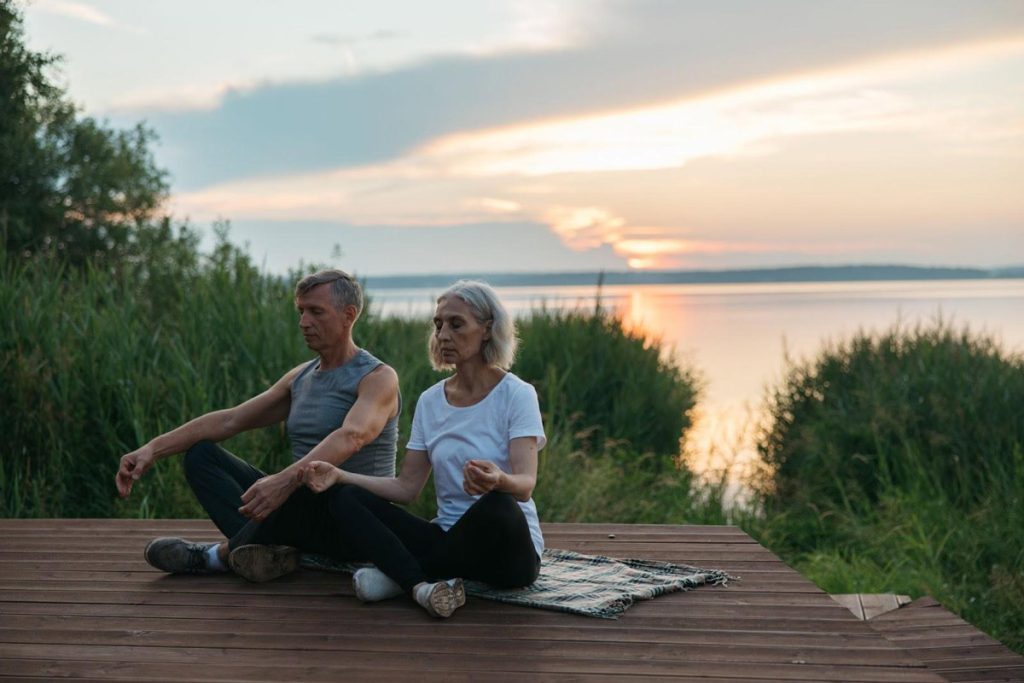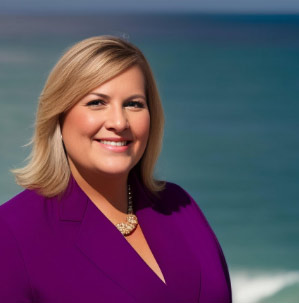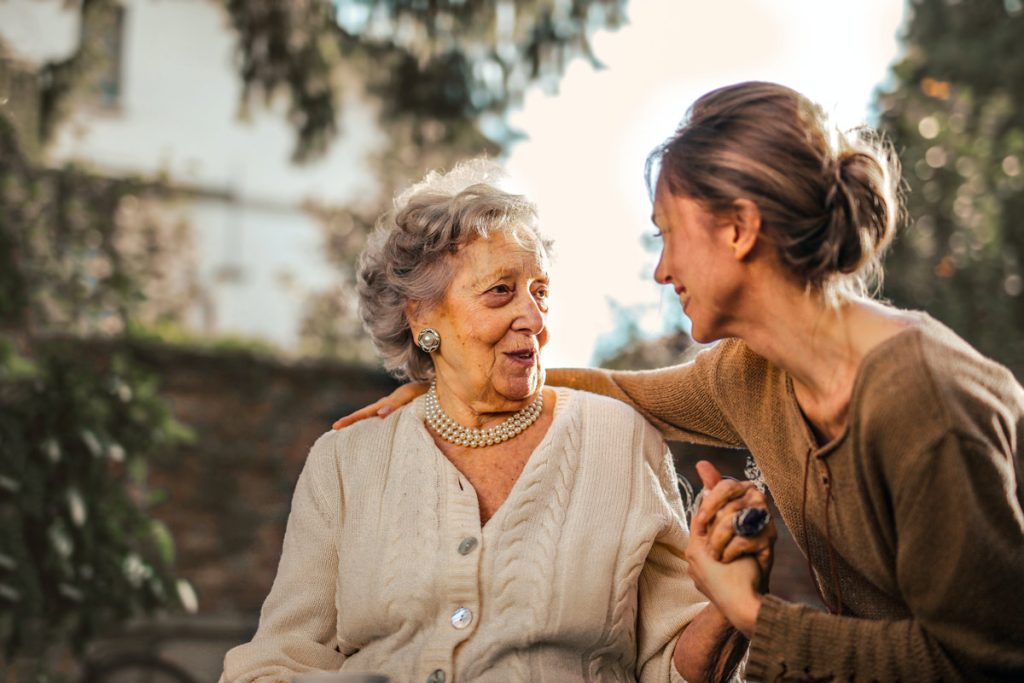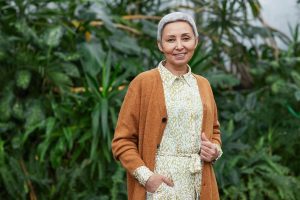Anxiety is a natural response to stress or danger, and it can manifest as feelings of fear, apprehension, or unease. It is a common experience for people of all ages, but it can be particularly challenging for seniors who may already be dealing with physical or emotional changes.
Addressing anxiety in seniors is crucial for several reasons. Anxiety can negatively impact seniors’ physical health, cognitive function, and social engagement, leading to a lower quality of life.
Untreated anxiety can also worsen and lead to developing anxiety disorders, which can be challenging to manage.
There are several possible causes of anxiety in seniors, some of which are unique to this population. As people age, they may experience various physical and emotional changes that can lead to anxiety. Here are some of the most common causes:
- Health concerns
- Retirement and financial worries
- Social isolation or loneliness
- Changes in living arrangements
- Fear of falling or accidents
- Cognitive decline or memory loss
If you have concerns, we suggest trying the following strategies to promote a greater sense of calm and enhance seniors’ overall well-being:
Encourage physical activity
Exercise can help seniors reduce anxiety by releasing endorphins and promoting relaxation. Encouraging seniors to engage in physical activity, even if it’s just a daily walk or light stretching, can be beneficial.
Encourage them to take part in activities they enjoy, such as swimming, yoga, or dancing.
Practice relaxation techniques

Seniors can benefit from relaxation techniques, such as deep breathing exercises, meditation, or progressive muscle relaxation. These techniques can help reduce anxiety and promote relaxation.
Examples include:
- Deep breathing exercises involve taking slow, deep breaths to promote relaxation and reduce tension.
- Progressive muscle relaxation involves tensing and relaxing muscles throughout the body.
- Meditation involves focusing the mind on a particular thought, feeling, or object to promote a sense of calmness and relaxation.
Promote social connections
Fostering social connections is a critical component in addressing anxiety among seniors. Social isolation and loneliness can exacerbate anxiety and depression, emphasizing the need for seniors to maintain meaningful relationships with others
A recommended approach to fostering social connections among seniors is to promote maintaining regular contact with family and friends through various means, such as phone calls, video conferencing, or scheduled in-person visits.
Consistent communication with loved ones can give seniors a sense of support and belonging, ultimately decreasing feelings of anxiety.
Address health concerns
Health issues, such as ongoing pain or illness, have the potential to trigger anxiety symptoms. It is advisable to address these concerns by seeking appropriate medical attention or by making healthy lifestyle choices, such as maintaining a balanced diet or engaging in regular physical exercise.
Encouraging seniors to seek medical attention and follow through with recommended treatments can help them feel more in control of their health.
- Regular doctor visits are crucial in managing seniors’ health concerns. Consistent checkups give seniors peace of mind and enable them to lead fulfilling lives.
- Physical therapy is a highly recommended course of action for seniors who are experiencing neck or back pain. Seeking the help of a physical therapist can effectively reduce pain and stress levels, both of which are potential contributors to anxiety.
Consider professional help
Keep in mind that anxiety is a common experience for seniors, and there are many underlying causes. They can be manifestations of health concerns, retirement or financial worries, social isolation, or even cognitive decline or memory loss.
If you notice their anxiety becoming more apparent, it is best to gather as much information as possible to understand the root of the problem. It is essential to address the underlying cause rather than applying short-term solutions like medication or uncomfortable avoidance tactics.
If seniors are experiencing persistent or severe anxiety, it may be necessary to seek professional help. Encourage them to speak with a mental health professional, such as a therapist or counselor, who can help them address underlying issues contributing to their anxiety.
Create a relaxing environment
Creating a relaxing environment can help reduce anxiety in seniors. Try creating a comfortable and calming living space, playing soothing music, or using aromatherapy.
Examples include using:
- Essential oils are a natural way to promote relaxation and calmness for seniors. Certain essential oils, such as lavender, chamomile, and bergamot, are believed to have calming effects on the body and mind.
- Playing soothing music is another way to create a relaxing environment for seniors. Soft, slow, and calming music can help slow the heart rate, reduce blood pressure, and promote relaxation.
- Creating a designated relaxation space can be helpful for seniors to unwind and de-stress. It can be a specific room or corner of the house intended for relaxation, such as a reading nook or a space for meditation.
Offer reassurance
Providing seniors with reassurance and support can help reduce feelings of anxiety. It includes offering encouragement, validating their feelings, and providing comfort and support during difficult times.
Seniors who feel they are being taken advantage of or that their needs aren’t being met may experience anxiety. That can be particularly challenging for seniors since they may not feel valued by others or capable of caring for themselves.
Offering reassurance is an excellent way to help alleviate anxiety in seniors. Some possible ways to reassure and comfort them include:
- Listen attentively: When seniors express their concerns, listen actively and attentively to what they say. Validate their feelings and let them know that you understand their worries.
- Offer empathy: Empathize with their feelings and emotions, and let them know you are there for them. Show you care and help by doing anything possible.
- Provide positive feedback: Encourage seniors by providing positive feedback about their strengths and capabilities. This can help boost their confidence and self-esteem.
- Be patient: It is important to be patient with seniors as they express their concerns and fears. Give them time to process their emotions and offer support throughout the process.
Encourage self-care
Encouraging seniors to prioritize self-care, such as getting enough sleep, eating a healthy diet, and engaging in regular physical activity, can help reduce anxiety symptoms and improve overall well-being.
Maintaining personal care is crucial for the overall health and well-being of seniors. This encompasses essential activities such as bathing, grooming, and dressing, which can become difficult as people age. Many seniors can preserve their independence and dignity with the appropriate support.
Things To Remember
It is crucial to recognize the signs and symptoms of anxiety in seniors and to take steps to relieve their fears. You can do this by employing the above strategies and helping them follow a healthy lifestyle.
The more challenging the anxiety symptoms, the more critical it is to seek professional help. Fortunately, there are many ways to help reduce anxiety symptoms in seniors, including medication, therapies, and support groups.
If you or someone you know experiences mental health issues, it is important to seek help from a qualified professional. Our Resource Specialists can help you find expert mental health resources to recover in your community. Contact us now for more information on this free service to our users.

About the Author: Evelyn K. Grier is a skilled content writer and blogger specializing in healthcare, senior care, and digital marketing. She contributes to the blogs and websites of SpringHive Digital Marketing Agency clients, creating engaging and informative content that resonates with readers. She also shares her expertise in senior care as a contributor to HAC Home Care, a website dedicated to providing helpful tips on caring for elderly family members. Outside work, Evelyn enjoys exploring new cuisines, practicing yoga, and hiking outdoors.
Images
https://www.pexels.com/photo/elderly-couple-doing-yoga-together-8795583/
The opinions and views expressed in any guest blog post do not necessarily reflect those of www.rtor.org or its sponsor, Laurel House, Inc. The author and www.rtor.org have no affiliations with any products or services mentioned in the article or linked to therein. Guest Authors may have affiliations to products mentioned or linked to in their author bios.





